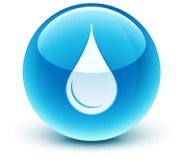Water Damage Testing
Water damage incidents, when not dealt with properly, can be a costly occurrence and can often result in extensive damage to structure and contents and accompanying microbial contamination, such as mold growth and bacteria. These incidents can vary in size and scope and can be caused by obvious events such as wind damage or sewage backups, or concealed events such water intrusion through building envelopes or slow pipe leaks inside walls. If these types of incidents are dealt with properly and in a timely manner, the loss can be kept to a minimum. Improper mitigation or delayed discovery of the problem can cause extensive damage and host-contamination to structure and contents.
 IAQ Management Services uses state-of-the-science methods and detection equipment to document the extent of water damage. This information can then be used by the client, the insurance adjuster, and the water restoration contractor to confirm the cause of loss and ensure that restoration is performed in a complete and professional manner. Our third-party reports describe the cause of damage, scope of damage, and method of remediation. This facilitates decisions regarding insurance coverage, restoration cost, and restoration methods. And we can verify that the project is complete.
IAQ Management Services uses state-of-the-science methods and detection equipment to document the extent of water damage. This information can then be used by the client, the insurance adjuster, and the water restoration contractor to confirm the cause of loss and ensure that restoration is performed in a complete and professional manner. Our third-party reports describe the cause of damage, scope of damage, and method of remediation. This facilitates decisions regarding insurance coverage, restoration cost, and restoration methods. And we can verify that the project is complete.
Our Approach
Our goal is to assist with these scenarios by performing the most assessments considered the most comprehensive and detailed in the industry. Since our practice is strictly limited to environmental testing and consulting – and never remediation – you’re assured of an unbiased assessment. Our method of inspection and testing provides an evaluation of damage to property and contents by reporting the following:
- Cause(s) of damage
- Scope of damage
- Character of damage
- Appropriate remediation plan
- Environmental quality
Additionally, a third-party clearance evaluation, including environmental inspection and testing, may be performed that will assess the effectiveness of remediation.
When to Call IAQ Management
Our professional, third-party service should be performed in the following circumstances:
- The cause and origin of damage is unknown
- 3rd party project scope development and post remediation verification is necessary
- Environment is primarily contaminated with fungal spores that were primarily dispersed from an area of mold growth or greater than 10 square feet of mold growth is identified
- Category 3 (black water) event has occurred and the occupants may be at risk
- Special needs or immune suppressed occupants may be exposed to contaminants or ill-health symptoms have been reported
- Damage is complicated (ie: drying process uncertain or identification of damage related versus unrelated to the loss is necessary)
 A word of caution: According to the IICRC S520 Standard and Reference Guide for Professional Mold Remediation, “The use of treatments, such as encapsulants, sealants, ozone or ultraviolet (UV) light as a substitute for removal and detailed cleaning is generally not recommended.”
A word of caution: According to the IICRC S520 Standard and Reference Guide for Professional Mold Remediation, “The use of treatments, such as encapsulants, sealants, ozone or ultraviolet (UV) light as a substitute for removal and detailed cleaning is generally not recommended.”
 IAQ Management Services, Inc.
IAQ Management Services, Inc.